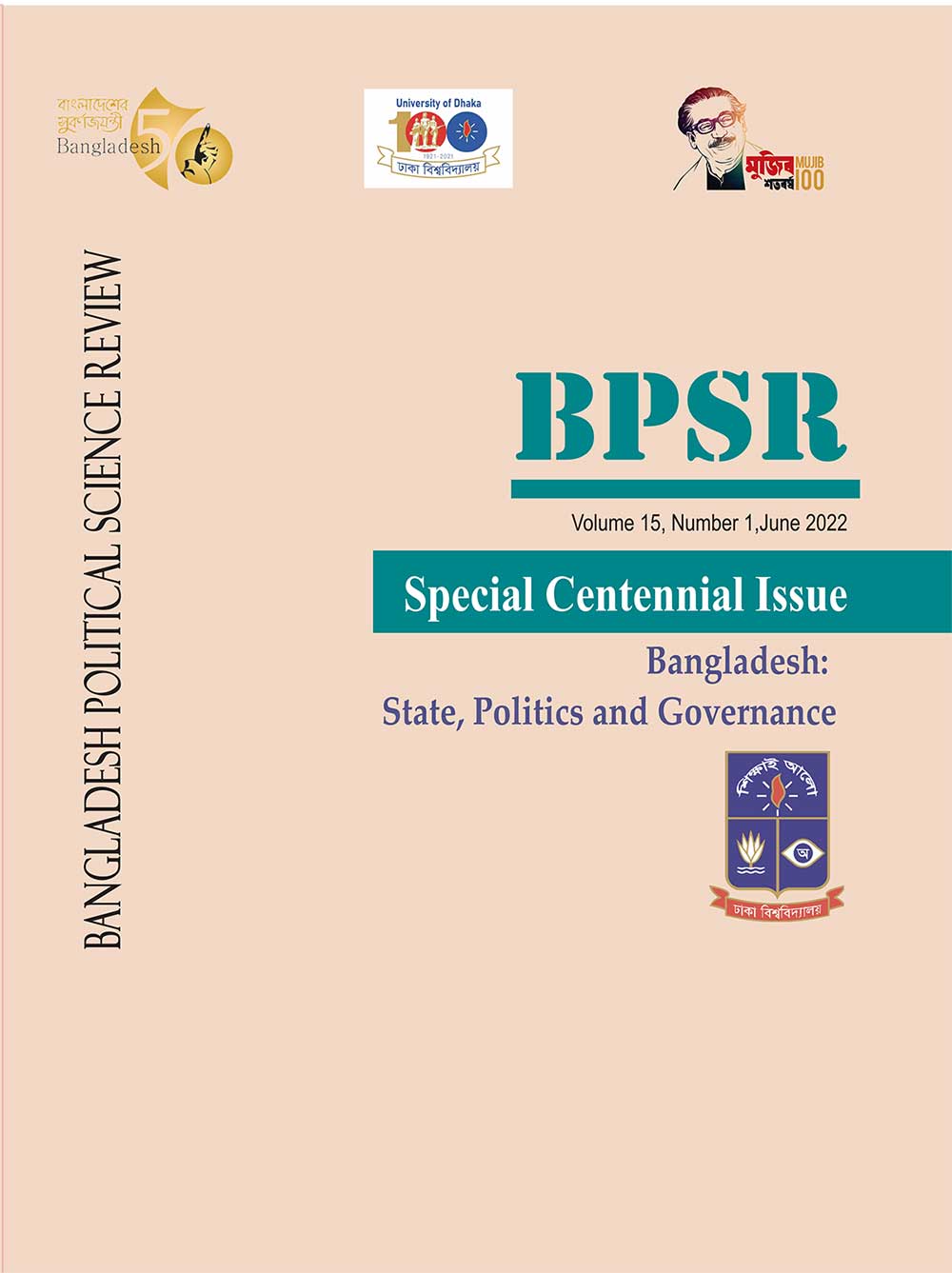
BANGLADESH POLITICAL SCIENCE REVIEW
Governing the Bangladesh–India borderland: No melting point for a state border and social boundary
- Abu Sufian*
Published: 14 October 2022
Bangladesh Political Science Review
Volume 15, Number 01, June 2022
DOI : https://doi.org/10.57074/NMFN4057
ISSN 1609-7289 (Print)
ABSTRACT
Why has the Bangladesh–India borderland become a highly securitized and motion-unfriendly borderscape in South Asia? In an attempt to answer the question, this study delves into the changing nature of the geopolitical governmentality and states’ perspectives on border governance in the Bangladesh–India borderland. Based on secondary data, this paper explores how this borderland has become a ‘territorial trap’ for borderlanders living on the edges of both states, following the unscientific border demarcation process in 1947, in general, and, the construction of highly-fortified border fences by the Indian state, in particular, neglecting socio-cultural affinities, historical belongings, biopolitical motion and the basic tenets of human geography in South Asia. The interplay among the issues of (illegal) migration, demographic shifts, terrorism, and clashing interests over the electoral and resource geographies in the states bordering Bangladesh has radically changed the security doctrine of India, allowing the growth of huge border infrastructure and technologies, to govern the Bangladesh–India borderland strictly. The central argument of the study is that the growing technologies, infrastructure, and doctrines employed to govern the Bangladesh–India borderland have been challenging the norms and values of ‘border as a process,’ allowing no space for the nexus between state border and social (biopolitical) boundary in practice.
Keywords: Geopolitics, state border, social boundary, Bangladesh-India borderland, biopolitical governmentality
Notes on Contributor
* Abu Sufian, Assistant Professor, Department of Political Studies, Shahjalal University of Science and Technology, Sylhet-3114, Bangladesh, sufian-pss@sust.edu
